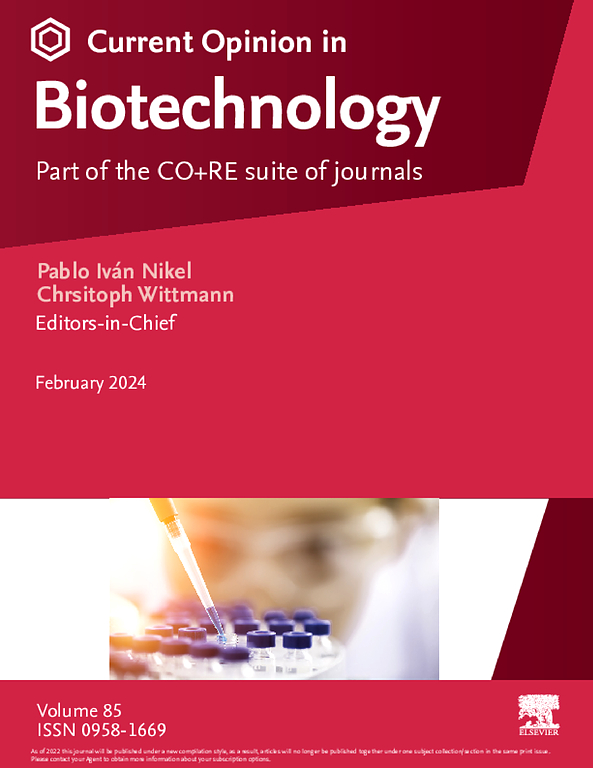Carbon-efficient waste upcycling: combining syngas fermentation and chain elongation with synthetic consortia
IF 7.1
2区 工程技术
Q1 BIOCHEMICAL RESEARCH METHODS
引用次数: 0
Abstract
Syngas fermentation and chain elongation are key anaerobic biotechnologies for waste carbon upcycling. Their integration as a mixotrophic process enables simultaneous conversion of gaseous and wet waste substrates into medium-chain carboxylic acids and alcohols with high yields and no CO2 emissions. However, in practice, open culture-based processes suffer from low product yields, poor electron selectivity, and a narrow product range. Here, we explore synthetic consortia as a platform to advance one-pot mixotrophic waste conversion to medium-chain oleochemicals. We propose strategies for building synthetic consortia through a top-down, bottom-up approach, leveraging automation and high-throughput microbiology to accelerate bioprocess development. These advances could improve yields, expand waste feedstocks, and produce new chemicals, accelerating carbon-efficient waste upcycling toward industrial adoption while driving the circular economy.
碳效率废物升级回收:结合合成气发酵和链延伸与合成财团
合成气发酵和链延伸是废碳升级利用的关键厌氧生物技术。它们作为混合营养过程的整合使气态和湿废底物同时转化为中链羧酸和醇,产量高,不排放二氧化碳。然而,在实践中,基于开放式培养的工艺存在产品收率低、电子选择性差和产品范围窄的问题。在这里,我们探索合成联盟作为一个平台,推进一锅混合营养废物转化为中链油脂化学品。我们提出了通过自上而下,自下而上的方法构建合成联盟的策略,利用自动化和高通量微生物学来加速生物工艺的发展。这些进步可以提高产量,扩大废物原料,生产新的化学品,加速碳高效废物的升级回收,在推动循环经济的同时实现工业应用。
本文章由计算机程序翻译,如有差异,请以英文原文为准。
求助全文
约1分钟内获得全文
求助全文
来源期刊

Current opinion in biotechnology
工程技术-生化研究方法
CiteScore
16.20
自引率
2.60%
发文量
226
审稿时长
4-8 weeks
期刊介绍:
Current Opinion in Biotechnology (COBIOT) is renowned for publishing authoritative, comprehensive, and systematic reviews. By offering clear and readable syntheses of current advances in biotechnology, COBIOT assists specialists in staying updated on the latest developments in the field. Expert authors annotate the most noteworthy papers from the vast array of information available today, providing readers with valuable insights and saving them time.
As part of the Current Opinion and Research (CO+RE) suite of journals, COBIOT is accompanied by the open-access primary research journal, Current Research in Biotechnology (CRBIOT). Leveraging the editorial excellence, high impact, and global reach of the Current Opinion legacy, CO+RE journals ensure they are widely read resources integral to scientists' workflows.
COBIOT is organized into themed sections, each reviewed once a year. These themes cover various areas of biotechnology, including analytical biotechnology, plant biotechnology, food biotechnology, energy biotechnology, environmental biotechnology, systems biology, nanobiotechnology, tissue, cell, and pathway engineering, chemical biotechnology, and pharmaceutical biotechnology.
 求助内容:
求助内容: 应助结果提醒方式:
应助结果提醒方式:


